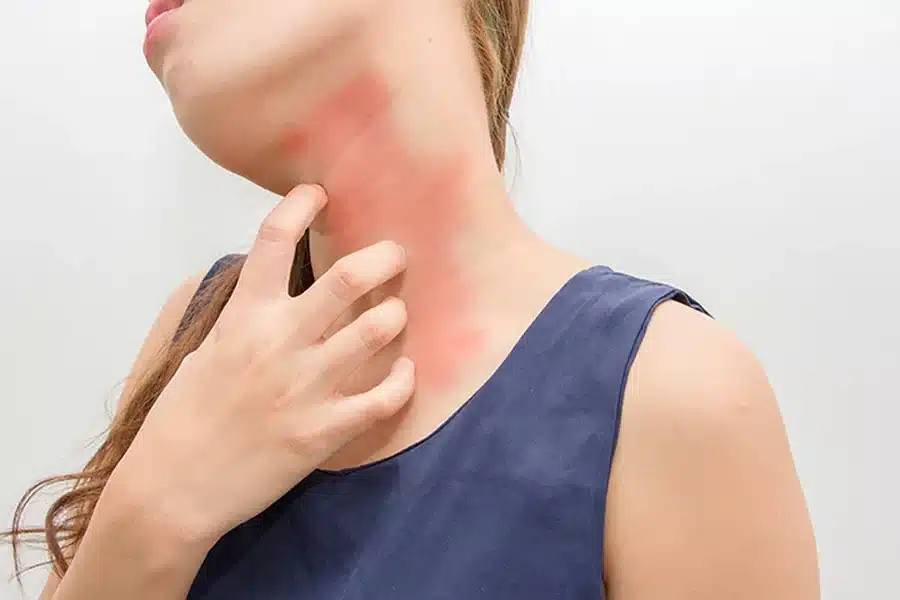Hidradenitis Suppurativa (HS), a chronic and often debilitating skin condition, is characterized by painful lumps, abscesses, and sinus tracts in areas where skin folds occur. While conventional medicine offers various management strategies, many individuals seek complementary and alternative approaches to address the root causes and improve their quality of life. In India, traditional systems like Ayurveda and Unani offer holistic perspectives and treatments for conditions like HS.
Ayurveda, the ancient Indian system of medicine, views skin disorders as a manifestation of imbalances in the body’s fundamental energies or Doshas – Vata, Pitta, and Kapha. In the context of Hidradenitis Suppurativa, imbalances in Pitta (associated with heat, inflammation, and infection) and Kapha (associated with stagnation, मुबारक, and structural issues) are often considered primary contributors. The accumulation of Ama (toxins) due to impaired digestion and metabolic function is also believed to play a significant role.
The Ayurvedic approach to managing HS focuses on addressing these underlying imbalances through a multi-pronged strategy that includes:
- Detoxification (Shodhana): Panchakarma therapies, such as Virechana (therapeutic purgation) and Vamana (therapeutic emesis), may be utilized under expert guidance to eliminate accumulated toxins and pacify the aggravated Doshas.
- Internal Medications (Shamana): Herbal formulations are prescribed to reduce inflammation, purify the blood, improve digestion, and strengthen the immune system. Herbs known for their anti-inflammatory, antimicrobial, and wound-healing properties like Neem (Azadirachta indica), Turmeric (Curcuma longa), Manjistha (Rubia cordifolia), and Guduchi (Tinospora cordifolia) are commonly used. Formulations aimed at addressing deep-seated infections and promoting healing of sinus tracts may also be part of the treatment plan.
- External Applications: Topical treatments using medicated oils, pastes (Lepas), and washes with potent herbs are employed to soothe inflammation, promote wound healing, prevent secondary infections, and reduce scarring.
- Dietary Modifications (Ahara): Specific dietary recommendations are provided based on the individual’s Dosha constitution and the nature of the imbalance. Generally, a Pitta-Kapha pacifying diet is advised, emphasizing fresh, easily digestible foods and avoiding excessive oily, spicy, and processed foods, as well as dairy products that can increase Kapha.
- Lifestyle Adjustments (Vihara): Recommendations on daily routine, hygiene, stress management techniques like Yoga and Pranayama, and appropriate clothing are given to support the healing process and prevent flare-ups.
While the user specifically requested information on Hidradenitis Suppurativa ayurvedic treatment, it’s worth noting that the Unani system of medicine, also practiced in India, shares some common principles with Ayurveda, particularly in its emphasis on balancing bodily humors (Akhlat) and utilizing natural remedies for detoxification and healing. Unani practitioners may employ therapies like Fasd (venesection) or Hijama (cupping) for detoxification and prescribe herbal formulations to address inflammation and support wound healing in conditions like HS.
Leading Ayurvedic centers in India, such as Deevya Ayurveda, offer specialized treatment protocols for Hidradenitis Suppurativa based on classical Ayurvedic texts and clinical experience. These centers typically provide personalized consultations to assess the individual’s unique constitution and the severity of the condition before formulating a comprehensive treatment plan. The focus is on addressing the root cause of the disease rather than just managing the symptoms, aiming for long-term relief and improved quality of life.
Seeking Hidradenitis Suppurativa Ayurvedic treatment in India for can offer a holistic and natural approach to managing this challenging condition. By addressing the underlying imbalances and promoting the body’s innate healing abilities, Ayurveda aims to provide sustainable relief and improve overall well-being. It is crucial to consult with qualified and experienced Ayurvedic practitioners for a proper diagnosis and a personalized treatment plan.


